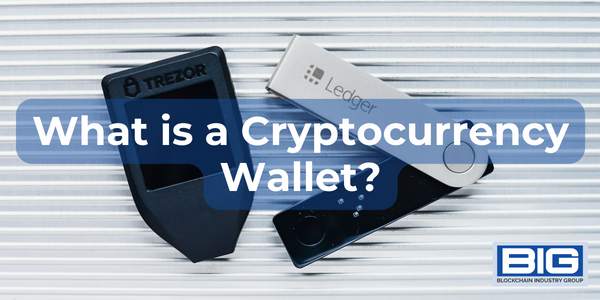
A cryptocurrency wallet is a software program that stores the private and public keys that are used to access and control a user’s cryptocurrency assets. It acts as a digital bank account, allowing users to send, receive, and manage their cryptocurrency holdings. Cryptocurrency wallets can be hardware-based, software-based, or even paper-based, and they may support a single cryptocurrency or multiple cryptocurrencies.
One of the biggest misconceptions about how a cryptocurrency wallet works is that it actually stores the user’s cryptocurrency assets. In reality, a cryptocurrency wallet does not store the actual coins or tokens. Instead, it stores the private and public keys that are used to access and control the user’s cryptocurrency assets, which are stored on the blockchain. This means that if a user loses their private key or their cryptocurrency wallet is compromised, they may lose access to their assets. It is therefore important for users to carefully protect their private keys and to choose a secure and reputable cryptocurrency wallet.
There are several benefits of using cryptocurrency wallets:
- Security: Cryptocurrency wallets use advanced cryptographic techniques to secure the private keys that are used to access and control a user’s assets. This can help to protect against unauthorized access or tampering with the assets.
- Convenience: Cryptocurrency wallets allow users to easily send, receive, and manage their cryptocurrency assets from any device that is connected to the internet. This can be more convenient than traditional financial systems, which may have more restrictions or requirements.
- Control: Cryptocurrency wallets give users full control over their assets, allowing them to make transactions and other actions without the need for intermediaries. This can be particularly useful in situations where traditional financial systems may not be accessible or may have high fees.
- Transparency: Cryptocurrency wallets can provide transparency into the movements and holdings of a user’s assets, allowing them to see their transaction history and account balances. This can be useful for tracking expenses or for auditing purposes.
- Accessibility: Cryptocurrency wallets can be accessed from anywhere with an internet connection, making them potentially more accessible than traditional financial systems, which may have geographic or other barriers.
There are many use cases for cryptocurrency wallets, including:
- Sending and receiving cryptocurrency: Cryptocurrency wallets can be used to send and receive cryptocurrency payments or transfers. This can be useful for making purchases, paying bills, or sending money to friends or family.
- Holding and storing cryptocurrency: Cryptocurrency wallets can be used to store and manage a user’s cryptocurrency assets, much like a traditional bank account. This can be useful for long-term investment or for holding onto assets for future use.
- Trading cryptocurrency: Cryptocurrency wallets can be used to store and manage assets while trading on cryptocurrency exchanges. This can be useful for buying and selling cryptocurrency or for participating in other trading activities.
- Participating in decentralized applications (dApps): Cryptocurrency wallets can be used to interact with dApps, which are decentralized applications that run on a blockchain. This can be useful for participating in various online activities, such as voting, gaming, or social networking.
- Managing cryptocurrency assets: Cryptocurrency wallets can be used to keep track of a user’s cryptocurrency assets and to manage their account balances. This can be useful for budgeting and financial planning, or for keeping track of expenses.
Gamification Monetization: Play-to-Earn (P2E)
—
Harnessing Innovation: 5 Benefits of Block Chain Technology
—
High-Level: Creating a Non-Fungible Token Project
Cryptocurrency wallets are software programs that store the private and public keys that are used to access and control a user’s cryptocurrency assets. They offer a range of benefits and many use cases. Overall, cryptocurrency wallets can make it easier and more convenient for users to manage and interact with their cryptocurrency assets, and they are an important tool in the growing world of cryptocurrency and blockchain technology.



